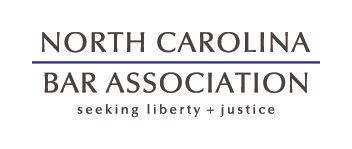My Ex Quit a High-Paying Job. Can a Judge Still Make Them Pay Support Based on Their Old Salary? | The Law Corner | Raleigh, NC
Precedent Case: Keith v. Keith, 911 S.E.2d 371 (N.C. App., December 31, 2024).
Findings of fact by the trial court were sufficient to support the conclusion that defendant intentionally depressed his income in deliberate disregard of his support obligation and to support the amount of income imputed to defendant. Prospective support is payable from the date the complaint or motion for support is filed. The trial court can order a different starting date for prospective support, but to do so is a deviation from the child support guidelines and must be supported with sufficient findings of fact. Findings must show that the deviation is based on the financial circumstances of the parties and sufficient to meet the reasonable needs of the children. A child’s summer camp fees may fall within the category of extraordinary expenses that can be allocated between the parents when the trial court makes findings that the expense is reasonable, necessary, and in the child’s best interest.
The defendant father appealed a trial court support order that imputed income to him after concluding that he acted in bad faith and that also ordered him to reimburse plaintiff mother for a portion of summer camp expenses she paid for one of the children. The court of appeals affirmed the trial court’s decision to impute income and affirmed the amount of income imputed, concluding that the trial court’s findings of fact were sufficient to support both. The court of appeals held that, when considering whether a parent has acted in bad faith, “the dispositive issue is whether a party is motivated by a desire to avoid his reasonable support obligations.” The court noted that a party’s motivation is generally proved by circumstantial evidence. In this case, the trial court findings showed the father intentionally left his employment after the parties separated to start his own business, and despite the success of the business, he refused to pay himself a salary “commensurate with his experience and earning potential”. In addition, the defendant father stated that he did not believe he should be required to pay support because the mother earned more than he earned and he shared custody of the children. These findings supported the trial court’s finding that he intentionally reduced his income in disregard of his child support obligation. The amount of income imputed to the defendant was supported by findings regarding the defendant’s earnings during the marriage and findings regarding how much he paid an employee of his new business. The trial court ordered prospective support and ordered that it be paid by defendant monthly beginning July 2019. Because plaintiff filed the complaint for support in August of 2017, the court of appeals held that the trial court “deviated from the Guidelines” which provides that prospective support begins at the time the request for support is made. Noting that the trial court “presumably” entered this order because there was evidence that father paid support to mother until July 2019, the court of appeals held that a deviation requires findings of fact.
Required findings include a determination “that deviating from the Guidelines would be appropriate to meet the reasonable needs of the children and the parents’ relative ability to pay, and that the presumptive amount of child support under the Guidelines would be inadequate, excessive, or otherwise inappropriate.” The trial court then needs to make findings to show the support ordered – or not ordered as in this case – was sufficient to meet the reasonable needs of the children considering the ability of the parents to pay during the time of the deviation. Because the child support order did not contain these required findings, this issue was remanded to the trial court. The court of appeals also remanded an issue related to the trial court’s order that father reimburse mother for a part of the amount she paid for one of the children to attend summer camp. The court of appeals held that amounts paid for summer camp can be allocated as an extraordinary expense if the trial court determines the amounts were reasonable, necessary, and in the child’s best interest. As the support order did not contain these findings, the issue was remanded to the trial court.




